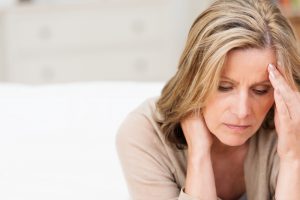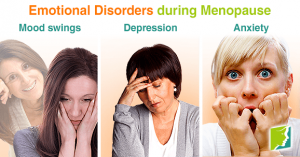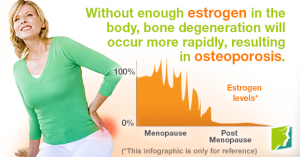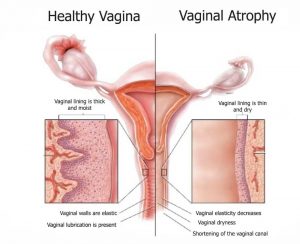Menopause: Changes during Mid-Life Years
Menopause- Your Return to Where You Were Before!

I am a woman. Yes, I just entered my Menopause. Pause? C’mon! Open that freaking window and let the fresh breeze come in!
A transition into a new phase of life is always hard at first, messy in the middle and gorgeous at the end. Some women experience it as a time of freedom and others see it as a health problem. Some enjoy the new phase as it brings a thrill to them and some experience discomfort. One thing is clear, the hormones in your body go through a roller coaster ride.
What is menopause?
Must-Have Menopause Kit
Medically, menopause is the stage of life that follows the end of the menstrual cycles. It usually starts between the age of 40 to 58 years but it is not the same for every woman. Some women may experience it prematurely due to the following factors:
- Medical conditions or treatment, such as the removal of ovaries
- Genetic predisposition that affects chromosomes such as Turner’s syndrome
- Underlying autoimmune disease
- Depression
- Any infection, such as malaria, tuberculosis or mumps (Although rare)
Spotting Signs/ Symptoms of Menopause
Once the woman’s body enters the transition phase, it experiences certain physical and mental changes. Some of these start before the actual menopause (usually 12 months that follow a woman’s last period) called perimenopause. Some start either 12 months after the last period or when menstruation has stopped due to some clinical reasons, such as removal of ovaries.
The symptoms involved in perimenopause and menopause are as following:
1. Irregular menstruation
Sometimes, your period communicates with you. Irregular menstruation is one such way. It comes in the form of heavy bleeding, light bleeding or it may come more or less frequently. It is usually the first sign of approaching menopause. However, a word of caution- irregular periods may indicate other underlying health issues as well. So without wasting any time, fix an appointment with your doctor in case you are experiencing the same symptoms.
2. Vaginal dryness and discomfort
As you approach menopause you might experience some discomfort down there such as dryness, itching and occasional inflammation of the vaginal wall. This could make your sexual life a little bumpy. Also, the risk of infection increases as there are more chances of skin break during intercourse. But don’t get disappointed as there are several products available in the market that will come to your rescue. Various moisturizers, lubricants, and medications can relieve symptoms and associated issues. Be sure to consult your doctor before using any of the above.
3. Menopausal Hot flashes/ Cold flashes

Hot flashes feel like a sudden sensation of heat in the upper body. This happens due to the expansion of blood vessels in the head, face, neck and chest region. The primary reason for this dilation is the fluctuating Estrogen levels.
This increase in the blood flow can cause blotchy patches on the skin. The feeling of looking flushed in public might cause anxiety and stress in some women. After a hot flash, the body attempts to cool itself. Therefore, a person may experience heavy sweating that might cause them to shiver. This condition is known as a cold flash. The frequency of hot/cold flashes varies in each woman. For instance, some experience it many times in an hour, or a few times a day or even less than once a week. Estrogen therapy may provide some relief in such a scenario.
4. Sleep disturbances during menopause

Does your daily routine gets disturbed when you don’t sleep well at night? Sleep deprivation can lead to severe mental and physical consequences on the body. The irregularity in sleep pattern stems from:
- Night sweating
- Increased urge to urinate
- Stress and anxiety
One solution is to consult your doctor and start medications that help you fall asleep. The only problem with these medications is that they make you dependent on them and are not healthy. Therefore, these medications are not a long-term solution to the problem.

However, you may try a few tips discussed below that will help you sleep naturally:
- Create a consistent sleep pattern. Going to bed at the same time every night helps your biological clock predict when to induce sleep.
- Avoid short naps during the daytime as they disrupt the circadian rhythm.
- Avoid using mobile phones at bedtime.
- Inculcating a reading habit can be relaxing. This helps in preventing anxious thoughts that interfere with sleep patterns.
- Avoid intake of caffeine for at least 4 hours before going to bed. It stimulates wakefulness.
5. Emotional changes/ Menopausal Rage

Hormones are powerful and we all stand helpless in their rouse. Hormonal changes can contribute to depression, anxiety, and low mood. It is common to experience times of irritability and crying spells. However, if anyone experiencing a low mood, sadness, and tiredness for two weeks or longer should see a doctor. He/she will advise you about the best course of action.
Some extreme cases of depression may even become suicidal. Seek help from a counselor or health professional if you find yourself feeling low.
To know more about mood swings during menopause, refer to the following video –
Suicide prevention during menopause:

If you know someone at immediate risk of self-harm or hurting another person:
- Call 911 or local emergency number
- Stay with the victim until help arrives
- Remove potentially harmful objects like weapons and medications
- Listen to the person without judging them
6. Physical changes
Your body can develop various physical changes around the time of menopause. You may experience:
- A build-up of fat around the abdomen
- Changes in hair texture, color, and volume
- Weight gain
- Breast reduction and tenderness
- Urinary continence
7. Increased risk of some health conditions
Menopause itself doesn’t cause these health issues. It is the hormonal changes that play a major role. Few health conditions are as following:
- Osteoporosis: This is a condition that affects bone density and bone strength. The bones become porous and weaker. This increases the risk of fractures especially in the hip and peripheral joints. Your doctor may recommend Vitamin D supplements and intake of more calcium-rich diet.

- Breast cancer: it is the most common invasive cancer in women and the second leading cause of death in women. Some types of breast cancer are more likely to develop after menopause. Early screening and treatment might help to prevent this health issue.
- Cardiovascular diseases: the American Heart Association (AHA) acknowledges that while the decline in the Estrogen level due to menopause may increase the risk of heart disease, taking hormonal therapy will not reduce this risk. The major reason for heart ailments could be genetics, pathological changes, chronic illness, lifestyle changes and stress. To know more about symptoms of menopause, refer to the video below –
Treatment of menopause
Menopause is not a health problem. It is a natural transition. However, it does involve unwanted physical and mental changes. It is best to consult your doctor and seek medical advice. Several options can help relieve the symptoms.
For many, menopause is not the only transition that occurs during the middle ages. Changes in relationships and work or home life- such as a divorce or children moving away can have a significant impact. When more than one of these changes occurs in a short period, it can feel overwhelming.
However, many people live an active and healthy life throughout menopause and for many years afterward. Midlife can often be the start of a new chapter.






